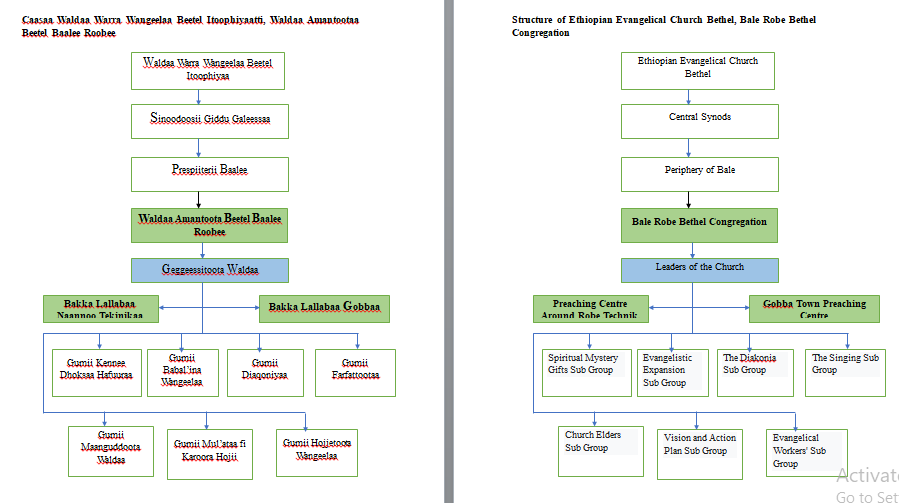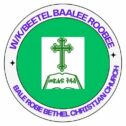Background History
- Brief History of Christianity in Bale
- The Historical background of Bale
Bale is one of the zones in Oromia regional state and is found in the south-eastern part of Ethiopia. This zone is bordered from the east by the Ethiopian Somali regional state and from the north, west, and south by other Oromia zones, namely west Aris, east Aris, west Harar, and Guji zones.
According to the 2007 GC Ethiopian censuses, the population of Bale is about 1,402,492. Among this population are Muslims (1,147,673), Orthodox Christians (273,610), Evangelical Christians (14,521), Catholics (1,499), and followers of traditional religions (722 and 467), respectively. When the data is explained by percentage, Muslims are 81.8%, Orthodox Christians are 16.9%, and Evangelical Christians are 1%. The remaining 0.3% are Catholic, traditional religion followers, and others. After almost two decades, the number of populations may have doubled, and the percentage of religious composition was expected to be the same except for a few increments for evangelical Christians. Generally, from the above percentage, one can easily visualize that Bale region is one of the unreached regions in Oromia regional state, particularly and as a country generally.
Like other Oromia zones, the official language spoken in Bale is Afan Oromo. Afan Oromo is estimated to be the mother tongue of not less than 95% of its people. This percentage is composed of almost all Muslims and the highest number of other religious members mentioned above. Even though almost all people are Oromos, evangelical Christian churches established before evangelical Bethel Church did not understand how and by what language they had to spread the kingdom of God in this region. Simply put, they limit themselves in the Robe town and use Amharic, which the wide society does not use frequently. We appreciate and say God bless them for bringing Christianity to this land, but understanding the socioeconomics, culture, and language of the society is very important to propagating the kingdom of God.
So, since its establishment, the Ethiopian Evangelical Church Bethel, Bale Robe Bethel congregation, has understood the opportunities of this environment to spread the kingdom of God in their native language, Afan Oromo. We believe that this idea made a great impact on the expansion of Evangelical Christian churches here around Bale. So, the vision of Ethiopian Evangelical Church Bethel (EECB) Bale Robe congregation was to open doors to evangelize the gospel and get other congregations that share the vision of this church.
1.2 History of Evangelical Christianity to the Area
The earliest well-known Christian church is the Orthodox Church. Evangelical Christianity emerged in Bale in the 20th century through the Sudan Interior Mission (SIM). The SIM entered Bale in 1951GC and settled in Goba town, the capital city of Bale province at the time (Kefyalew, BFh:2011). The SIM missionary work is the basis for Evangelical Christianity in Bale, particularly in Robe town. Among these, Kale Hiwot and Mekane Yesus denominations are the fruits of SIM work.
Even though the gospel has been working for more than half a century (72 years), the percentage of Evangelical Christians is much lower when compared with the total population of the zone. This clearly shows that evangelical churches have to find ways of reaching these people. As we learn from the gospel, spiritual works must respect and consider all the identities of society and their language in bold. As Bale Robe Bethel congregation, we believe that the main obstacle to the spread of the Bible is that all the former churches ignored society’s native language (Afan Oromo) and their traditions.
- The establishment of Ethiopian Evangelical Church Betel, Bale Robe Bethel Congregation
The Ethiopian Evangelical Church Betel, Bale Robe Bethel Congregation was established on January 19, 2013GC by 62 adult members that separate from the Ethiopian Evangelical Church Mekane Yesus Robe Congregation due to its limitations in answering the questions frequently asked of its members. Among those questions:
- Why did this church not approach the surrounding community through their traditions?
- Why did the church not serve its members in their native language?
- Why has the church always stayed the same? and so on, raised by certain groups that have a clear vision.
Since most of the members of this group, who have a vision of how to expand the kingdom of God in Bale, are mature enough, the group prefers to separate from Robe Mekane Yesus Congregation in September 2013.
Since its establishment, Bale Robe Bethel Congregation has been devoted to accomplishing its vision and, as a result, has launched four additional preaching centers within a year. Namily
- Ali Town preaching Center
- Alemgena Preaching Center
- Goba Town Preaching Center
- Angetu Preaching Centre
Currently, Ali Town and Alemgena preaching centers are collapsing due to a land-construction problem, while Goba and Angetu preaching centers have become full congregations.
Structure of Ethiopian Evangelical Church Bethel, Bale Robe Bethel Congregation

